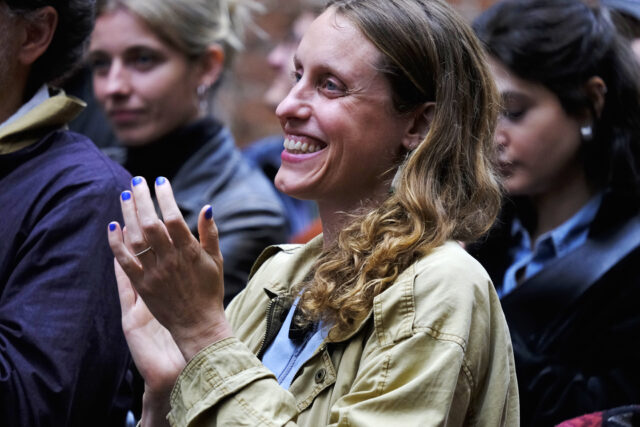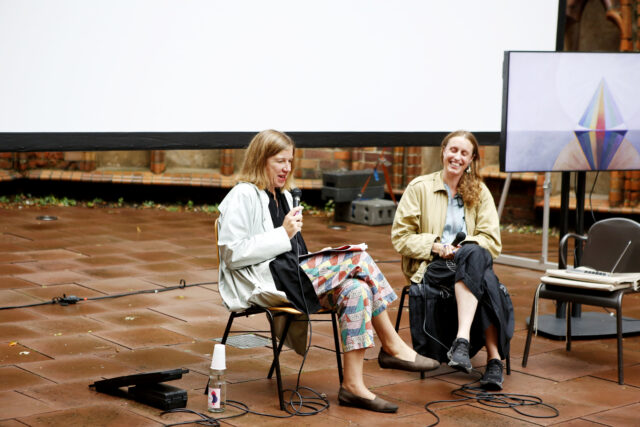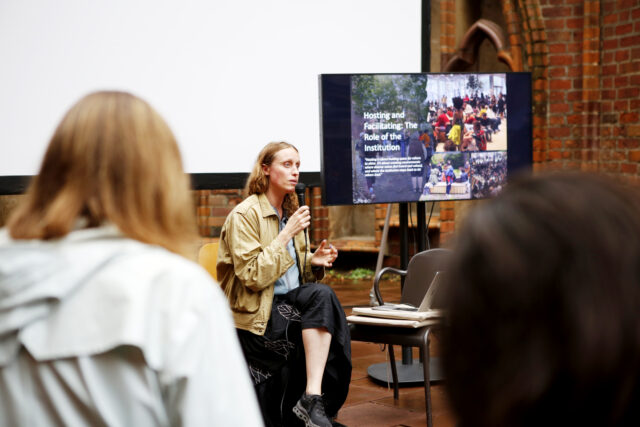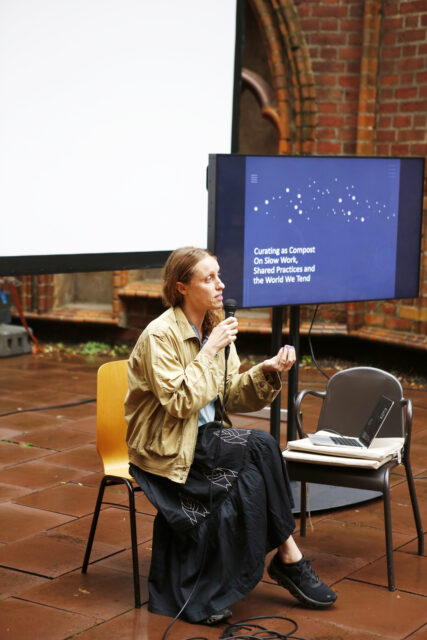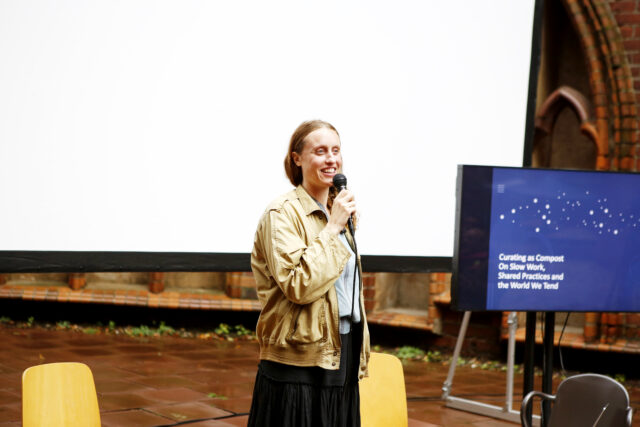Curating as Compost: On Slow Work, Shared Practices, and the Worlds We Tend
Lecture by Antonia Alampi
Event
17 July 2025, 19:00 Free admission
Lecture in English
In this talk, Antonia Alampi reflects on curatorial practice not as authorship, but as composting: a layered and slow process of cultivating meaning, relationships, and collective transformation. Speaking from her role as the co-founding Artistic Director of Spore Initiative, she shares how cultural work can emerge from long-term collaborations with initiatives across the global majority—where knowledge is ancestral, land-based, and structurally marginalized. Central to her approach is the development of shared practices—values and ways of doing that resist extractivism, decentralize authorship, and question dominant ideas of visibility. These internal tools help navigate critical questions: What knowledge is shown, to whom, and why? How can cultural work remain meaningful within the communities it comes from, rather than serving distant curiosity? And how might art and culture be re-understood not as exceptional or elite, but as everyday practices that sustain life, memory, and existence? Rather than programming toward visibility, she proposes a curatorial methodology rooted in deep listening, mutual care, and slow institutional transformation—where the goal is not to exhibit, but to hold, nourish, and sustain.
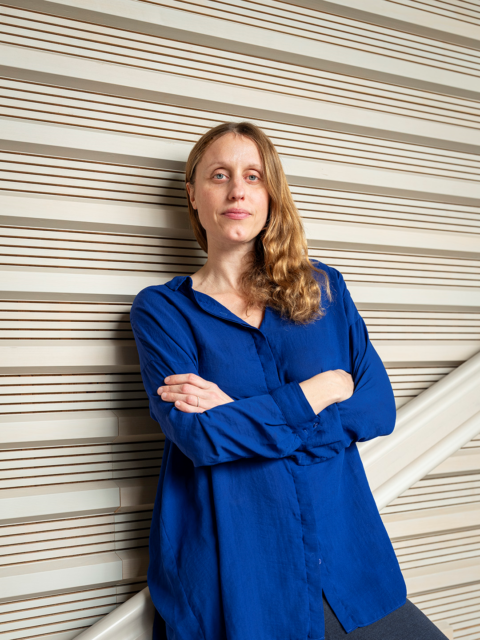
Antonia Alampi, Photo: Marvin Systermans
